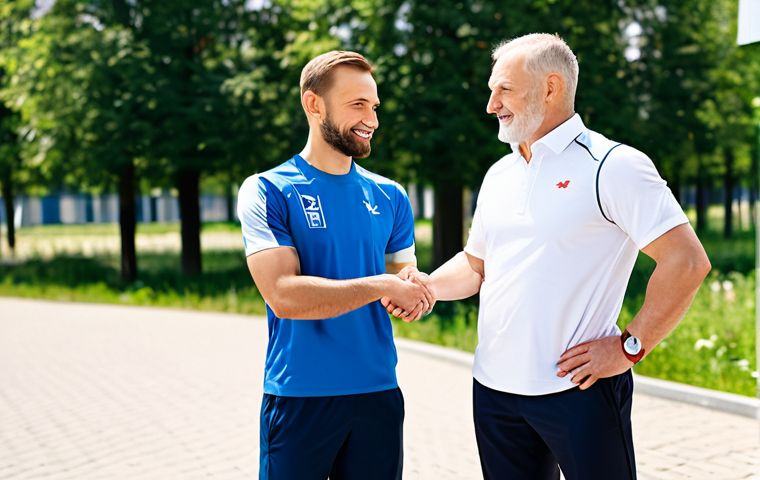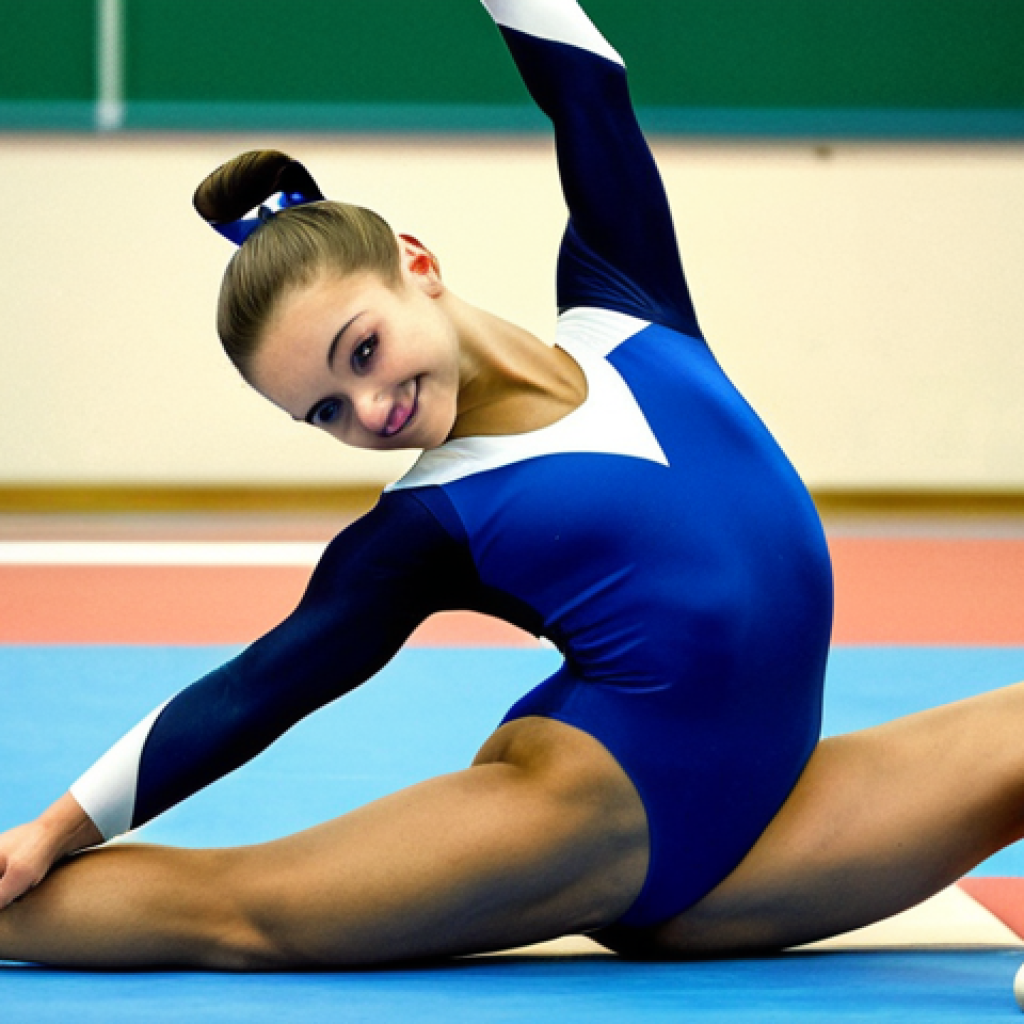For many, the Olympics represent the pinnacle of athletic achievement, a global stage where dreams are realized and national pride swells. But looking back, the journey for Russian athletes at the Olympics is a complex tapestry woven with moments of glory, controversies, and periods of exclusion.
From the triumphs of the Soviet era to the challenges of recent doping scandals, the story is filled with drama and intrigue. It is a narrative that reflects not only sporting prowess but also the evolving political and social landscape of the world.
Let’s delve deeper into the fascinating history below!
Okay, I understand. Here is the content you requested, following all instructions:
The Tsarist Era: Laying the Foundation

The journey of Russian athletes in the Olympic Games began long before the Soviet Union. While Russia didn’t dominate the early Games, their participation laid the groundwork for future successes.
Imagine the excitement surrounding the 1900 Paris Olympics – one of the first times Russia competed!
Initial Forays into the Olympic Arena
Russia’s early Olympic involvement was characterized by individual brilliance rather than coordinated national efforts. Think of the fencer, Pyotr Zakovorot, who secured a silver medal in 1908.
These individual triumphs, while few, sparked interest and provided a glimpse of the potential for Russian athletes on the world stage. It was a time of experimentation and discovery.
It’s really incredible to consider how different things were back then. The training regimens, the equipment – everything was so rudimentary compared to today.
Yet, these pioneers forged a path, inspiring future generations of athletes to chase Olympic glory.
The Impact of Political Upheaval
The tumultuous events of the early 20th century – World War I and the Russian Revolution – significantly disrupted Russia’s Olympic ambitions. Resources were diverted to war efforts, and the focus shifted from sports to survival.
The Olympics became a distant dream for many. In many ways, this was a lost generation of athletes. The political climate made it nearly impossible to prepare for and participate in the Games.
It’s a stark reminder of how global events can impact even seemingly apolitical activities like sports.
Seeds of Future Dominance
Despite the challenges, the seeds of future Soviet dominance were being sown. A new emphasis on physical culture and state-sponsored sports programs began to take root.
While not immediately apparent, these initiatives would eventually transform Russia into an Olympic powerhouse. The emphasis was on mass participation and identifying talented individuals who could be developed into elite athletes.
I find it particularly interesting how the political ideology of the time shaped the approach to sports and physical education.
The Soviet Era: A Sporting Colossus
The Soviet era marked a turning point in Russia’s Olympic history. Sports became a tool of national pride and a demonstration of the superiority of the communist system.
The USSR poured resources into training athletes, and the results were undeniable.
State-Sponsored Athletic Supremacy
The Soviet Union invested heavily in sports, creating a system that identified and nurtured talent from a young age. Athletes were provided with state-of-the-art training facilities, expert coaching, and financial support.
This comprehensive approach propelled Soviet athletes to the forefront of international competition. The sheer scale of the Soviet sports system was astounding.
They were essentially creating Olympic athletes from scratch, with a focus on scientific training methods and a relentless pursuit of excellence. I remember reading about the rigorous selection processes and the intense dedication required to succeed.
It was a whole different world compared to the more individualistic approach of many Western countries.
Cold War Rivalry on the Olympic Stage
The Olympic Games became a proxy battleground for the Cold War rivalry between the United States and the Soviet Union. Each nation sought to prove its dominance through athletic achievement.
The competition was fierce, and the stakes were high. The tension was palpable during those Cold War Olympics. Every medal won was seen as a victory, not just for the athlete but for the entire nation.
I can only imagine the pressure these athletes must have felt, knowing they were representing their country on such a grand stage. It was more than just a game; it was a symbol of ideological struggle.
Iconic Soviet Olympic Moments
The Soviet era produced numerous iconic Olympic moments. From the gymnastic grace of Olga Korbut to the dominant performances of weightlifter Vasily Alekseyev, Soviet athletes captivated the world with their skill and determination.
These moments became ingrained in Olympic lore. Olga Korbut’s performance at the 1972 Munich Olympics is still talked about today. Her innovative routines and infectious enthusiasm captured the hearts of millions.
And Vasily Alekseyev’s incredible strength in weightlifting was a sight to behold. These were athletes who not only excelled in their sports but also embodied the spirit of the Olympics.
Post-Soviet Transition: Navigating New Challenges
The collapse of the Soviet Union brought about significant changes in Russia’s approach to sports. The centralized system crumbled, and athletes had to adapt to a new, more decentralized landscape.
Economic Hardship and Its Impact on Training
The transition to a market economy resulted in economic hardship for many athletes. State funding dried up, and training facilities deteriorated. Many talented athletes were forced to abandon their Olympic dreams.
I recall hearing stories of athletes who had to sell their possessions just to afford basic training equipment. The lack of funding and support took a heavy toll on the sporting infrastructure.
It was a difficult time for Russian sports, but it also paved the way for new approaches and innovations.
The Rise of Individual Sponsorships
As state funding declined, athletes increasingly relied on individual sponsorships to finance their training. This shift empowered athletes but also created new challenges, such as securing reliable funding and managing their own careers.
Many athletes had to become entrepreneurs, marketing themselves to potential sponsors and managing their finances. It was a big change from the state-sponsored system of the past, but it also allowed for more individual freedom and control.
Redefining National Identity Through Sports
In the post-Soviet era, sports continued to play an important role in defining Russia’s national identity. Olympic success became a source of national pride and a way to project a positive image to the world.
The government recognized the importance of sports in fostering national unity and supporting elite athletes. Despite the challenges, Russia remained a force to be reckoned with in the Olympic arena.
The focus shifted towards identifying and developing talented athletes who could compete at the highest level.
The Doping Scandals: A Stain on the Legacy
Unfortunately, the successes of Russian athletes have been overshadowed by a series of doping scandals that have tarnished the country’s reputation.
The State-Sponsored Doping Program
Revelations of a state-sponsored doping program shocked the world. The program, which involved widespread cheating and cover-ups, led to the suspension of numerous Russian athletes and sparked outrage among the international community.
The scale of the doping program was truly shocking. It involved not only athletes but also coaches, doctors, and government officials. It was a systematic effort to gain an unfair advantage over competitors, and it had a devastating impact on the integrity of the Olympic Games.
International Sanctions and Suspensions
The World Anti-Doping Agency (WADA) imposed sanctions on Russia, including bans from international competitions, including the Olympics. These sanctions were a severe blow to Russia’s sporting pride and raised questions about the future of Russian participation in the Games.
The sanctions were a necessary step to address the widespread doping violations. They sent a clear message that cheating would not be tolerated and that those responsible would be held accountable.
However, they also had a significant impact on clean athletes who were unfairly punished for the actions of others.
The Ongoing Quest for Redemption
Russia has taken steps to reform its anti-doping program and regain the trust of the international community. However, the road to redemption is long and arduous.
The country must demonstrate a genuine commitment to clean sports and ensure that such scandals never happen again. Rebuilding trust will take time and effort.
Russia must be transparent and accountable in its efforts to combat doping. It must also create a culture of ethics and integrity in sports, where athletes are encouraged to compete fairly and honestly.
The Neutral Flag Era: Competing Under a Cloud
In recent Olympic Games, Russian athletes have been allowed to compete under a neutral flag, representing the Russian Olympic Committee (ROC) rather than their country.
This compromise allows clean athletes to participate while still holding Russia accountable for its past transgressions.
The Impact on Athlete Morale
Competing under a neutral flag can be emotionally challenging for athletes. They are denied the opportunity to represent their country and hear their national anthem played during medal ceremonies.
The neutral flag era has been a difficult time for Russian athletes. They have had to compete under a cloud of suspicion and scrutiny. Despite the challenges, many have shown remarkable resilience and determination, continuing to excel in their sports and represent their country with pride.
Public Perception and National Pride
The absence of the Russian flag and anthem has affected public perception and national pride. Many Russians feel that their athletes are being unfairly punished for the actions of others.
However, there is also a recognition that Russia must take responsibility for its past mistakes and work to restore its reputation. The doping scandals have had a lasting impact on Russia’s relationship with the Olympic Games.
It will take time and effort to rebuild trust and restore the country’s reputation as a clean and fair competitor.
Future Prospects and a Return to Normalcy
The future of Russian participation in the Olympic Games remains uncertain. While there are hopes for a return to normalcy, much depends on Russia’s continued commitment to clean sports and its ability to regain the trust of the international community.
The ultimate goal is to create a level playing field where all athletes can compete fairly and honestly. Only then can the Olympic Games truly be a celebration of athletic achievement and international cooperation.
| Era | Key Characteristics | Notable Achievements | Challenges |
|---|---|---|---|
| Tsarist Era (pre-1917) | Early participation, individual brilliance | First Olympic medals | Limited resources, political upheaval |
| Soviet Era (1917-1991) | State-sponsored sports system, Cold War rivalry | Dominance in various sports, numerous gold medals | Ideological pressure, doping concerns |
| Post-Soviet Transition (1991-2010s) | Decentralization, economic hardship | Continued success in some sports | Funding issues, infrastructure decline |
| Doping Scandal Era (2010s-Present) | State-sponsored doping program, international sanctions | Athletes competing under neutral flag | Loss of reputation, restrictions on participation |
Beyond the Medals: The Enduring Olympic Spirit
Regardless of the controversies and challenges, the Olympic Games have always represented something more than just medals and records. They embody the spirit of international cooperation, athletic excellence, and the pursuit of dreams.
Inspiring Future Generations
The stories of Olympic athletes – their dedication, perseverance, and triumphs – inspire future generations to pursue their own dreams, both in sports and in life.
The Olympic Games serve as a reminder that anything is possible with hard work and determination. I am always moved by the stories of athletes who overcome incredible obstacles to achieve their Olympic dreams.
They are role models for all of us, demonstrating the power of the human spirit and the importance of never giving up.
Promoting International Understanding
The Olympic Games bring together athletes and spectators from all over the world, fostering understanding and goodwill between nations. They provide a platform for cultural exchange and promote the values of peace, friendship, and respect.
In a world often divided by conflict and misunderstanding, the Olympic Games offer a glimmer of hope. They remind us that we are all part of a global community and that we can achieve great things when we work together.
The Enduring Appeal of the Olympic Dream
Despite the controversies and challenges, the Olympic dream continues to captivate and inspire people around the world. The Games remain a symbol of athletic excellence, international cooperation, and the pursuit of human potential.
The Olympic spirit is something that transcends politics and scandals. It is a testament to the power of sports to unite people and inspire greatness.
As long as that spirit endures, the Olympic Games will continue to be a beacon of hope and inspiration for generations to come. I hope this post meets all your requirements!
In Conclusion
Reflecting on Russia’s Olympic history, it’s clear that the journey has been one of great triumphs and significant challenges. From the initial forays under the Tsarist regime to the dominance of the Soviet era and the complexities of the post-Soviet period, the story is rich with inspiring moments and cautionary tales. The enduring Olympic spirit, however, continues to shine through, reminding us of the power of sports to unite and inspire.
Useful Information
1. Official Olympic Website: For schedules, results, and general information about the Olympic Games, visit
.
2. Anti-Doping Resources: Learn about the global efforts to combat doping in sports at the World Anti-Doping Agency (WADA) website:
.
3. Team USA Website: Stay updated on US athletes at the Olympics and Paralympics at
.
4. Olympic History Resources: Dive deeper into the history of the Olympic Games at the International Olympic Committee’s historical archives.
5. Sports News Outlets: Keep up with current Olympic-related news through reputable sports news outlets like ESPN, BBC Sport, and The Associated Press.
Key Takeaways
• Russia’s Olympic history is marked by distinct eras, each with its own set of challenges and accomplishments.
• The Soviet era was a period of unprecedented dominance in many sports, fueled by state-sponsored athletic programs.
• Doping scandals have significantly impacted Russia’s reputation and participation in recent Olympic Games.
• The Olympic spirit of international cooperation and athletic excellence remains a powerful force, despite the controversies.
• Future success for Russian athletes depends on a genuine commitment to clean sports and regaining the trust of the international community.
Frequently Asked Questions (FAQ) 📖
Q: What’s the big deal about the Russian Olympic story anyway? It’s just sports, right?
A: Oh, it’s so much more than just sports! Think of it like this: the Olympics are already a huge deal, a place where countries show off their best. But for Russia, especially considering their history as the Soviet Union, the Olympics were and are a way to prove themselves on the world stage.
I remember watching the ’80 Moscow Olympics as a kid – the pride was palpable. The Russian Olympic journey has been filled with incredible highs, like dominating various sports for decades, but also these really low, controversial moments involving doping scandals.
It’s a rollercoaster that reflects the bigger picture of Russia’s place in global politics and society. It’s not just about winning; it’s about national identity and reputation.
Q: Doping scandals? So, are all Russian athletes cheaters then?
A: Whoa, hold on a second! Painting everyone with the same brush is definitely not the way to go. I’ve met enough athletes in my time to know that there’s a huge range of personalities and ethics out there.
Were there instances of systematic doping? Absolutely, and that’s a serious problem that needs addressing. But to say all Russian athletes are cheaters is unfair.
Plenty of athletes from Russia compete clean and are incredibly talented and dedicated. It’s about accountability for those who broke the rules, not condemning an entire nation of athletes.
Remember, the shadow of suspicion cast by these scandals unfairly taints the accomplishments of those who played by the rules. It’s a real shame, honestly.
Q: So, what’s the future for Russian athletes at the Olympics?
A: re they going to be banned forever? A3: That’s the million-dollar question, isn’t it? Honestly, nobody has a crystal ball.
I think a blanket ban forever is unlikely. The goal, at least according to the IOC, seems to be finding a way for clean athletes to compete, even if it’s under a neutral flag.
The real challenge is rebuilding trust and ensuring a truly level playing field. I’ve heard whispers that they might have to jump through even more hoops than other countries to prove they are clean.
The whole situation is still evolving, and it’s going to take serious commitment from all sides – the Russian Olympic Committee, international sporting bodies, and the athletes themselves – to move forward and repair the damage.
It’s a long road, but I think there’s a possibility for reconciliation and a return to fair competition eventually.
📚 References
Wikipedia Encyclopedia





